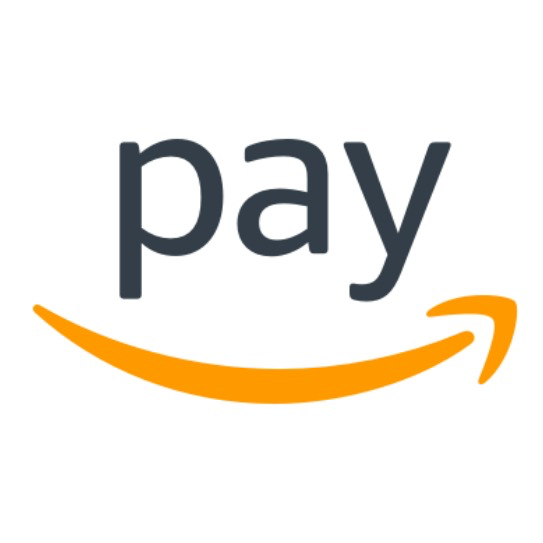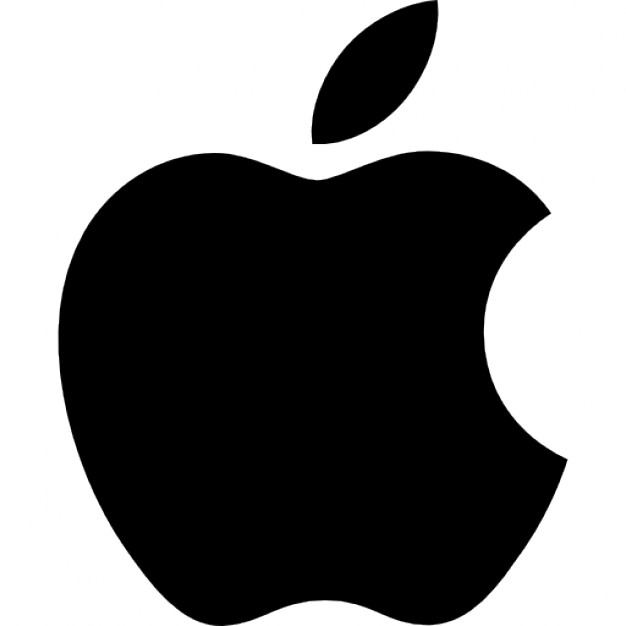How I Started A $840K/Year Business Selling Limited Edition Sneakers [Italy]
Hello! Who are you and what business did you start?
Hi there! My name is Kola Tytler and I am the founder of dropout.
dropout (lower-cased!) is a retail business, based in Italy, focused on the sale of limited edition sneakers and streetwear, with a flagship based in Milan and a busy ecommerce.
Our customers range from seasoned sneakerheads to hypebeast, to curious individuals just looking to purchase the trendiest exclusive trainers.
Recovering from pandemic-related closures, dropout turned over 100k USD in sales in December 2021 alone and projects to turn over 7 digits in 2022, with the majority of revenue coming from sneakers sales.
In the second part of the year, we will increase our focus in providing our vast traffic (over 500 thousand unique visitors have landed to dropoutmilano.com between December 2021 and February 2022) with dropout branded products to suit the taste of streetwear wearers.

What's your backstory and how did you come up with the idea?
Born in London in 1994 to Nigerian parents, I grew up in a town near Rome (Italy) and moved back to London in 2013, to study medicine at King’s College London for uni. Working to fund my studies and living expenses, after fulfilling my dream of buying a pair of Jordans, I started learning about the underground sneaker resale market, to then self-teach to code and wrote a sneaker bot to automate the purchase of trainers from websites at release time (2015).
I shortly afterward met Yiannis (who had launched YEEZY Mafia) and Stefano (my right-hand man, who later launched Outpump). With the latter, I later created software to collect data and run statistical analysis to determine patterns in price changes within this very dynamic yet unexplored industry. HypeAnalyzer was born. We used the growing dataset to create predictive pricing models and a scoring system that would allow products to be comparable. I then used the tool to systematically invest in sneakers, eventually cashing out to finance the biggest share of dropouts.
After yet another failed university exam, in 2018 I was diagnosed with dyslexia and dyspraxia: I was still in uni when I decided to bring to Italy the ultimate sneaker shopping experience, where prices, consignment rates, and sales were objectively dictated by the analysis software. My frustration with university led to the business being called “dropout”, also a shoutout to Kanye’s “College Dropout”.
I learned that it is ok to expect the initial phases to take time, and I suggest keeping in mind that things may move slowly at times and that corrective steps may be necessary.
dropout® pricing and marketing are still largely dictated by HypeAnalyzer algorithms. The output of these includes data for pricing, consignment rates (dynamic and affected by things such as volatility and demand, objectively calculated), and discounts.
Despite its name, I stuck to the course and qualified as a medical doctor, running a 7-digits business (latest evaluation is over 2.5M USD) while working front line during the pandemic, and juggling clinical commitments with the need to keep business afloat despite our main retail location being in Milan, right by the European epicenter of the pandemic for the first wave.
Take us through the process of designing, prototyping, and manufacturing your first product.
The beginning of the business was quite “rushed” and impulsive. I did not have much of a business plan and the excitement of creating something new that I could consider my brainchild was pretty much the driving force behind the majority of our initial actions. For anyone that has an idea they’d like to turn into a business, however, I would urge you to, first of all, write it down since our instincts are fantastic, but moments of inspiration can sometimes leave us for a while before the creative drive returns.
Overcoming problems enables people to grow as individuals and provides a more optimistic attitude on life in general.
I would then sleep on it for a day or two after it is on paper/notepad/laptop/something retrievable before beginning to think about what the execution would entail and developing an outline of the essential processes. For me then followed the desk(ish) based research online and through relatives and friends to determine which of the aforementioned processes makes the concept superior to the most similar thing already in existence. In my case in Italy, there were pretty much no existing solutions for customers seeking authentic limited edition sneakers, all options were pretty much online and abroad, with nothing serving a streetwear “hungry” Milanese crowd.
After the research is the setting of a more or less clear goal (making a social contribution? Getting rich? Solving a global problem?) and, based on that, developing a basic operations strategy, proper business plan, forming a team, and so on. For dropout, the part of developing a proper business plan was, however, rather lacking, with none of us having formal business management competencies, Google and Youtube certainly came through handy.

Describe the process of launching the business.
Dropout was originally opened with no external funding or external consultants. Everything we did was done in-house, from looking for the location to sourcing materials with the interior designer (a friend of ours, who did a wonderful job) to the marketing strategy.
To encourage people to come and visit the retail location, we did not share any photos of the store until the opening day and we decided to open online sales only after 4 weeks from the instore opening.
The opening stock (a couple of hundreds of pairs) was a combination of part of our deadstock collections and stock of consignors from the online communities of which we were part. By the time dropout opened I was administrator of a sneaker-focused Facebook group (called YEEZY Italia), with over 30 thousand active users. Later on, the stock would come from deals with local resellers, seasoned consignors, and online drops of regular retailers.
Funds used were completely from the savings of myself and my business partners, who thankfully believed in the project as much as I did. Pretty much the entire amount invested came from savings made by the previous stocking and reselling of sneakers. We made use of EVERY contact we had for things such as insurance, permissions for the launch event, flyer printing, etc.
Networking truly is the key to business!
Since launch, what has worked to attract and retain customers?
Dropout witnessed a very strong start, thanks to the way I and my business partner had managed to mobilize our friends, friends of friends, and numerous business communities to talk (and attend for whoever possible) about our business.
The store welcomed over 1,000 in its opening weekend (September 2018) and instore visitors have since exceeded 50,000, with millions of website visitors and over 10k orders received and fulfilled. Our in-store sales generally beat online 3:1, however, we have recently turned to turbo-charging our e-commerce to re-equilibrate this. If the pandemic taught us something….
Our streamlined and neat communicative style, together with the strong use of Facebook ads and subtle advertising in Facebook streetwear communities have ensured that dropout remains in the mind of our most aficionado customers and that we often get contacted by publications seeking opinions on the streetwear and sneaker worlds.
We have organically been featured in VICE, Business Insider and several national Italian publications because of our interesting story and how we naturally manage to get our personal experiences to the public in a way they can relate to us.
Of course, however, it is important to ensure the fundamentals are covered, offering good customer service, the occasional discount, and ensuring regular contact with clients have been pivotal in retaining customers.

How are you doing today and what does the future look like?
Business certainly did take a hit in 2020 and 2021, with a reduction in sales of around 30% (although noted forced closures for over 40% of the year). The business however remained profitable and our pathways proved strong enough to see us out of the financial crisis generated by the pandemic.
In October 2021 we launched our first funding round, raising €750k via equity crowdfunding in 6 days. The round saw the participation of 2 VC funds and 130 retail investors (67% of which are under 35!). We’ll open a new retail location as well as several temporary stores throughout Italy; improve e-commerce and further develop HypeAnalyzer.
Through starting the business, have you learned anything particularly helpful or advantageous?
It takes time: I'm sure it's possible to create and generate overnight successes, but I compare starting a business to building a house rather than playing the lottery: while you could buy a single ticket, win, and become instantly wealthy, the chances of this happening are so slim that I wouldn't recommend counting on it. Building a house, on the other hand, needs planning, material, and finish selection, as well as solid principles and the participation of multiple professionals.
I learned that it is ok to expect the initial phases to take time, and I suggest keeping in mind that things may move slowly at times and that corrective steps may be necessary. Even though it just took a few months for dropout to get national attention and widespread exposure, the effort behind the concept was extensive.
Another very important learning point was the realization that to run a business, a team is essential since no one person can do it all. Even the most gifted painters and innovators required the assistance and input of others to complete their work. As much as we may adore our concept, it is all too easy to become tunnel vision and struggle to recognize weaknesses and bottlenecks.
Having a team also implies that work may be delegated and that activities that may be done by several persons at the same time can be done more efficiently. Dropout employs a method in which everyone may offer input on operations, and the responsible person for that particular procedure makes a decision based on the remarks.
What platform/tools do you use for your business?
In dropout, we make strong use of automation and digital tools to aid the running of the business and to try and minimize the need for human intervention in decisions that a machine can take objectively: as such we use an in-house integrated stock management system which is linked to HypeAnalyzer and to an AI-driven platform where users can sell us their inventory.
The basis for our eCommerce and retail point of sale system is Shopify, which works very well for us and we have recently introduced Klarna amongst the accepted payment methods, allowing customers in Italy the option to split the payment into 3-interest free installments. Both of those systems have been pretty straightforward to implement, with the initial launch of the store not requiring more than a few Youtube tutorials to get our heads around Shopify’s basic and most useful functions.
Social media is important to ensure we stay relevant in our target audience’s minds (and eyes) and we make use of Instagram, Facebook, and Pinterest ads for this purpose.
What have been the most influential books, podcasts, or other resources?
I consider myself a product of my lived experiences, as well as a result of all the stories and circumstances I have been exposed to: important to my development, have certainly been certain biographies I read, namely the one of late Steve Jobs and the one of Phil Knight (called “Shoe Dog”), who is the founder of Nike.
Advice for other entrepreneurs who want to get started or are just starting out?
Be prepared for ups and downs: I have never heard of a business that is completely seamless from start to finish; thus, being prepared (mentally and practically) for when things go wrong is essential. As the pandemic, particularly the first wave, hit northern Italy hard, we needed to increase our e-commerce and digital presence to guarantee that the firm remained sustainable despite closures.
What allowed us to “survive” and sail through the hardest crisis in our generation is a mixture of good spirit, capacity as well as being somehow “ready” (for as much as you can be…in those situations) for difficulties of most kinds.
Despite the difficulties in running a business, however, I would highlight one thing: the payoff is indescribable. Witnessing your concept grow and become a viable business is one of the finest feelings I've ever had (and still have!). Overcoming problems enables people to grow as individuals and provides a more optimistic attitude on life in general.
Are you looking to hire for certain positions right now?
We are not actively hiring at this very moment however if you think that you could contribute something to improving dropout or you’d enjoy being a part of the team, please do reach out to me on LinkedIn or Instagram!
Where can we go to learn more?
If you have any questions or comments, drop a comment below!

Download the report and join our email newsletter packed with business ideas and money-making opportunities, backed by real-life case studies.

Download the report and join our email newsletter packed with business ideas and money-making opportunities, backed by real-life case studies.

Download the report and join our email newsletter packed with business ideas and money-making opportunities, backed by real-life case studies.

Download the report and join our email newsletter packed with business ideas and money-making opportunities, backed by real-life case studies.

Download the report and join our email newsletter packed with business ideas and money-making opportunities, backed by real-life case studies.

Download the report and join our email newsletter packed with business ideas and money-making opportunities, backed by real-life case studies.

Download the report and join our email newsletter packed with business ideas and money-making opportunities, backed by real-life case studies.

Download the report and join our email newsletter packed with business ideas and money-making opportunities, backed by real-life case studies.

































